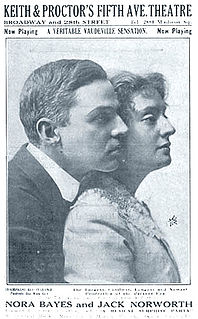 W
WAcousticon Hour was a "musicale" radio program aired during 1927 and 1928 on NBC. It offered selections from classical music, orchestral favorites, operas and operettas.
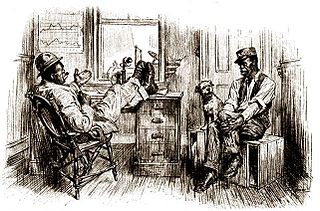 W
WAmos 'n' Andy is an American radio and television sitcom set in Harlem, the historic center of Afro-American culture in New York City. The original radio show, which ran from 1928 to 1960, was created, written and voiced by two white actors, Freeman Gosden and Charles Correll, who played Amos Jones (Gosden) and Andrew Hogg Brown (Correll), as well as incidental characters.
 W
WThe Atwater Kent Hour was a top-rated radio concert music program heard on NBC and CBS from October 4, 1925, to December 17, 1934, with stars of the Metropolitan Opera often making appearances. Classical music was performed by a large symphony orchestra under the direction of Josef Pasternack. Soprano Frances Alda was often the featured vocalist, and soprano Mary Eastman also performed. The opening theme music was "Now the Day Is Over," by Sabine Baring-Gould (words) and Sir Joseph Barnby (music).
 W
WThe Capitol Theatre was a movie palace located at 1645 Broadway, just north of Times Square in New York City, across from the Winter Garden Theatre. Designed by theater architect Thomas W. Lamb, the Capitol originally had a seating capacity of 5,230 and opened October 24, 1919. After 1924 the flagship theatre of the Loews Theatres chain, the Capitol was known as the premiere site of many Metro-Goldwyn-Mayer (MGM) films. The Capitol was also noted for presenting live musical revues and many jazz and swing bands on its stage.
 W
WChampion Spark Plug Hour was a music radio program sponsored by Champion. It was broadcast on New York's WJZ and WGY during the late 1920s and early 1930s. An entry in The Chronicle-Telegram for October 4, 1926, indicates the show aired on Tuesday afternoons at 5 p.m. By 1928, they were heard Wednesday evenings at 8 p.m. on the NBC Blue Network.
 W
WThe Chase and Sanborn Hour is the umbrella title for a series of American comedy and variety radio shows sponsored by Standard Brands' Chase and Sanborn Coffee, usually airing Sundays on NBC from 8 p.m. to 9 p.m. during the years 1929 to 1948.
 W
WThe Clicquot Club Eskimos was a popular musical variety radio show, first heard in 1923, featuring a banjo orchestra directed by Harry Reser. A popular ginger ale, Clicquot Club, was Canada Dry's main rival. Clicquot was the name of the Eskimo boy mascot depicted in advertisements and on the product.
 W
WThe Collier Hour, also known as Collier's Radio Hour, broadcast on the NBC Blue Network from 1927 to 1932, was radio's first major dramatic anthology.
 W
WThe Eveready Hour was the first commercially sponsored variety program in the history of broadcasting. It premiered December 4, 1923 on WEAF Radio in New York City. Radio's first sponsored network program. it was paid for by the National Carbon Company, which at the time owned Eveready Battery. The host for many years was the banjo-playing vocalist Wendell Hall, "The Red Headed Music Maker," who wrote the popular "It Ain't Gonna Rain No Mo'". Hall was married on The Eveready Hour in 1924.
 W
WThe Fleischmann's Yeast Hour was a pioneering musical variety radio program broadcast on NBC from 1929 to 1936, when it became The Royal Gelatin Hour, continuing until 1939. This program was sponsored by Fleischmann’s Yeast, a popular brand of yeast.
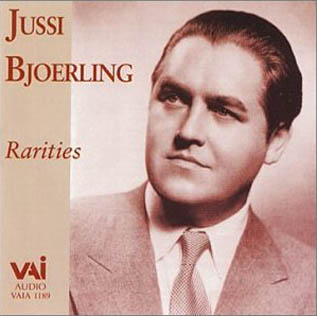 W
WGeneral Motors Concerts, offering classical music on the radio, were heard in different formats on the NBC Red and NBC Blue networks between 1929 and 1937. The concerts began 1929-31 as a 30-minute series on the Red Network with Frank Black as the musical conductor on Mondays at 9:30pm. It also aired as General Motors Family Party.
 W
WThe Goldbergs is a comedy-drama broadcast from 1929 to 1946 on American radio, and from 1949 to 1956 on American television. It was adapted into a 1948 play, Me and Molly; a 1950 film The Goldbergs, and a 1973 Broadway musical, Molly.
 W
WThe Grand Ole Opry is a weekly American country music stage concert in Nashville, Tennessee, founded on November 28, 1925, by George D. Hay as a one-hour radio "barn dance" on WSM. Currently owned and operated by Opry Entertainment, it is the longest-running radio broadcast in US history. Dedicated to honoring country music and its history, the Opry showcases a mix of famous singers and contemporary chart-toppers performing country, bluegrass, Americana, folk, and gospel music as well as comedic performances and skits. It attracts hundreds of thousands of visitors from around the world and millions of radio and internet listeners.
 W
WGreat Moments in History was a dramatic radio series broadcast on NBC in 1927–28. It offered recreations of famed historical situations.
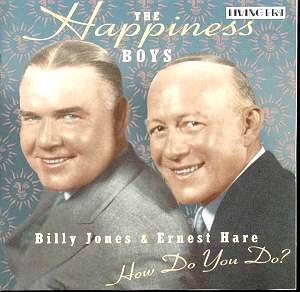 W
WThe Happiness Boys was a popular radio program of the early 1920s. It featured the vocal duo of tenor Billy Jones and bass/baritone Ernie Hare, who sang novelty songs.
 W
WThe Hoover Sentinels was a radio concert series which was broadcast on NBC from 1927 to 1935. Sponsored by Hoover Vacuums, it was sometimes heard as Madame Schumann-Heink, Hoover Sentinels Serenade, Sentinels Serenade or Hoover Sentinels.
 W
WHouse of Myths was an early radio series which aired on NBC in 1926-29.
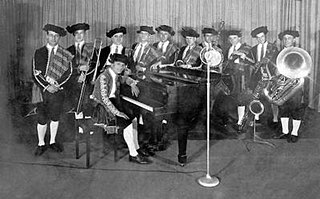 W
WThe Ipana Troubadors was a musical variety radio program which began in New York on WEAF in 1923. In actuality, the Troubadors were the Sam Lanin Orchestra. They opened the show with their theme, "Smiles."
 W
WThis article is on the U.S. radio series. For the UK TV series see Let's Pretend. For the Raspberries song see Let's Pretend.
 W
WThe Majestic Theater of the Air, also known as The Majestic Hour, is an American musical radio program that aired on the CBS radio network between 1928–1932 on Sunday evenings. The series was produced and emcee'd by Wendell Hall and sponsored by Chicago's Grigsby-Grunow Company, manufacturers of Majestic Radios. It began on the CBS network in October, 1928, with a coast-to-coast hookup of 29 stations.
 W
WMobil, previously known as the Socony-Vacuum Oil Company, is a major American oil company that merged with Exxon in 1999 to form a parent company called ExxonMobil. It was previously one of the Seven Sisters that dominated the global petroleum industry from the mid-1940s until the 1970s. Today, Mobil continues as a major brand name within the combined company, as well as still being a gas station sometimes paired with its own store or On the Run. The former Mobil headquarters in Fairfax County, Virginia, was used as ExxonMobil's downstream headquarters until 2015 when ExxonMobil consolidated employees into a new corporate campus in Spring, Texas.
 W
WNational Barn Dance, broadcast by WLS-AM in Chicago, Illinois starting in 1924, was one of the first American country music radio programs and a direct precursor of the Grand Ole Opry.
 W
WThe National Farm and Home Hour is a variety show that was broadcast in various formats from 1928 to 1958. Aimed at listeners in rural America, it was known as "the farmer's bulletin board" and was produced by the United States Department of Agriculture with contributions from, and the cooperation of, various farm organizations. Raymond Edward Johnson and, later, Don Ameche appeared in dramatic sketches in the role of the Forest Ranger.
 W
WOld Gold on Broadway was a 1927–28 radio series which, beginning in October 1927, broadcast live from inside New York theaters, sponsored by Old Gold Cigarettes.
 W
WThe Palmolive Hour was a radio concert hour in the US, sponsored by Palmolive Soap and broadcast on NBC from December 9, 1927, to July 29, 1931. The Palmolive Musical Stock Company offered a mix of jazz, show tunes and opera selections.
 W
WUncle Don is a children's radio program that aired on WOR radio from 1928 to 1947. The host was Uncle Don Carney, a former vaudeville performer. The half-hour program was broadcast daily, five or six days a week.
 W
WThe Waldorf–Astoria Orchestra was an orchestra that played primarily at the Waldorf Astoria Hotel, both the old and new locations. In addition to providing dinner music at the famous hotel, the orchestra made over 300 recordings and many radio broadcasts. It was established in the 1890s, and was directed by Carlo Curti in early 1900s, Joseph Knecht at least from 1908 to 1925, later by Jack Denny and others, and then Xavier Cugat from approximately 1933 to 1949.
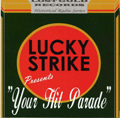 W
WYour Hit Parade is an American radio and television music program that was broadcast from 1935 to 1953 on radio, and seen from 1950 to 1959 on television. It was sponsored by American Tobacco's Lucky Strike cigarettes. During this 24-year run, the show had 19 orchestra leaders and 52 singers or groups. Many listeners and viewers casually referred to the show with the incorrect title The Hit Parade.